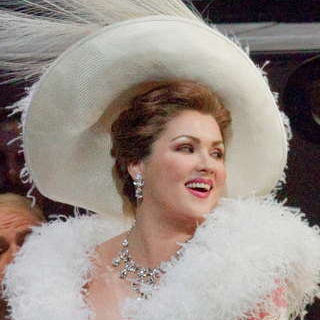 CENTRAL ENGLAND: Mike Wheeler's concert reviews from Nottingham and Derbyshire feature high profile artists on the UK circuit - often quite early on their tours.
CENTRAL ENGLAND: Mike Wheeler's concert reviews from Nottingham and Derbyshire feature high profile artists on the UK circuit - often quite early on their tours.
Gennady Rozhdestvensky
'Few conductors do so little and achieve so much' - Keith Powers, The Boston Herald
Russian conductor and pianist Gennady Rozhdestvensky was born Gennady Nikolayevich Anosov in Moscow on 4 May 1931 into a musical family - his father was the conductor Nikolai Anosov and his mother the soprano Natalya Rozhdestvenskaya. He studied conducting with his father at the Moscow Conservatory, and piano with Lev Oborin.
He quickly established a reputation as a conductor after conducting Tchaikovsky's The Sleeping Beauty at the Bolshoi, aged twenty. He went on to give first performances of many Soviet composers' works, and also gave the first Russian performance of Britten's A Midsummer Night's Dream and the first performance in the west of Shostakovich's Symphony No 4 (at the 1962 Edinburgh Festival).
He was the first Soviet conductor to work as a principal orchestral conductor in the west, and managed to conduct music by composers who were unpopular in the Soviet Union - Hindemith, Poulenc and Shostakovich, for example. He was well-known for his interpretations of Gubaidulina, Prokofiev and Schnittke, but also performed and recorded all the Vaughan Williams symphonies in Leningrad.
Orchestras he worked with included the Bolshoi Theatre Orchestra (principal conductor, 1964-70), the BBC Symphony Orchestra (chief conductor, 1978-81), the USSR Ministry of Culture Symphony Orchestra (1983-91) and the Royal Stockholm Philharmonic Orchestra (1992-95).
After a career lasting more than half a century, Gennady Rozhdestvensky, who was much honoured internationally, including by France, Japan, Sweden and the UK, died on 16 June 2018, aged eighty-seven.



